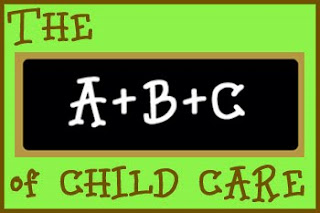The ABC of Child Care: U is for…
There is no denying that babies and toddlers have their own unique outlook on the world, mostly thanks to the rapid development taking place in those first years of life. It is important therefore that child care centres have in place clear policies and practices developed to meet the specific needs of children within the ‘under two’ age range. Is is essential that under twos have;
- Caring, consistent staff who get to know them and their family closely,
- A safe and healthy environment, with routines, facilities and storage which ease the burden on staff when meeting a baby’s needs within the group environment,
- A learning program suitable to the development of this group, especially given what we now know about the importance of laying foundations for lifelong learning within the first few years of life, and
- Developmentally appropriate experiences, play space and resources.
And these are the things parents should assess when considering a child care centre for their bub or tot.
Often parents are most concerned with who will be caring for their baby, what the physical space is like, routines such as feeding and nappy changing, and this is obviously perfectly reasonable. It is however, also important that a centre provides an appropriately planned program and environment which will stimulate the learning of the babies and toddlers who spend their days there. Planning for under twos within a child care environment should encompass learning through;
- Everyday routines and experiences –
replicating learning that happens everyday at home with family,
- The development of relationships with staff and the other babies and toddlers,
- Simple ‘activities’ – which are not about creating an end product but about enjoying a fun and engaging process,
- Incorporating the input of family about the child’s development and learning – parents should be respected as those who know the child best and their input on behalf of their baby/toddler should be sought and incorporated into the learning program,
- Planning how the environment will help to support all of the above.
It is important that experiences are planned to support learning in all areas of development;
- Thinking and reasoning skills – for example, a simple hide the toy under a play cloth game stimulates a baby/toddlers thinking skills
- Physical skills – both large motor skills like learning to sit, crawl or walk, and fine motor skills such as turning the page in a book or holding a crayon
- Language skills – learning to communicate within a social environment and engaging with literacy experiences
- Social skills and emotional development – including behaviour guidance
- Sensory exploration
- Creative exploration with music and dance, art materials and drama (puppets, storytelling)
- Engagement of the interests of each child – I wrote about the interests of small children in this post;
“I do believe that even very young children have interests. For example, at any moment a young baby or toddler is learning to roll, or crawl, or walk, or jump. This is their current interest, they are determined to master the new skill, they practise and practise. So we (often spontaneously) formulate experiences to encourage mastery of this new skill. We support and cheer on their efforts to jump, we jump with them, we sing and jump to make jumping fun. This is a form of Emergent Curriculum – taking what the child is interested in learning about and making it interesting and engaging for them to learn it.”
For parents who have ‘under twos’ in child care, what were you looking for when you chose a suitable child care centre? What do you value most about the care your child receives?
The ABC of Child Care series of posts aims to illustrate for parents what quality child care looks like in practice as both a tool for parents looking for child care for the first time and as a resource for all parents with children in care. As someone who ran a high quality centre for many years, I believe we all share a responsibility to ask questions and expect results when it comes to the environment and people caring for and educating our youngest and most impressionable citizens.
Find the other posts in the ABC of Child Care series here.



High Fashion Emerging Designers Wanted for Fashion Week Show: The Emerging Trends 2010 for Boston Fashion Week promises to bring the best Euro chic designers to the Boston market. In the last two years, we have worked with over 25 international and national designers, major sponsors, buyers and press and 30 photographers from Boston and New York giving extensive opportunity for emerging designers to shine. Spots are limited and we book months in advance. At the show, you will receive all models, hair, makeup, video clips, photos, buyers contact and networking opportunity at one of the biggest and prestigious shows in Boston. Over 600 fashion forward individuals come to our show and our designers are promoted to over 200k people via online and offline marketing.
For more info about our past show, please visit: http://www.theEmergingTrends.com or our promo video from last year: http://www.youtube.com/watch?v=9AezCJlFCo8.
About Us:
The SYNERGY Events (www.theSYNERGYevents.com) uses very unique online and offline marketing strategies to produce themed events in both Boston and New York City, which have been covered by Boston Globe, Fashion Boston, Boston Common, Improper Bostonian, Boston Magazine & many other online and print publications. These special events present known, and soon to be talents with a great opportunity to introduce their exceptional work, while networking and enjoying other talents from around the world.
Contact Us:
Please send all contact details with your portfolio to:
BostonFashion[at]theSYNERGYevents.com